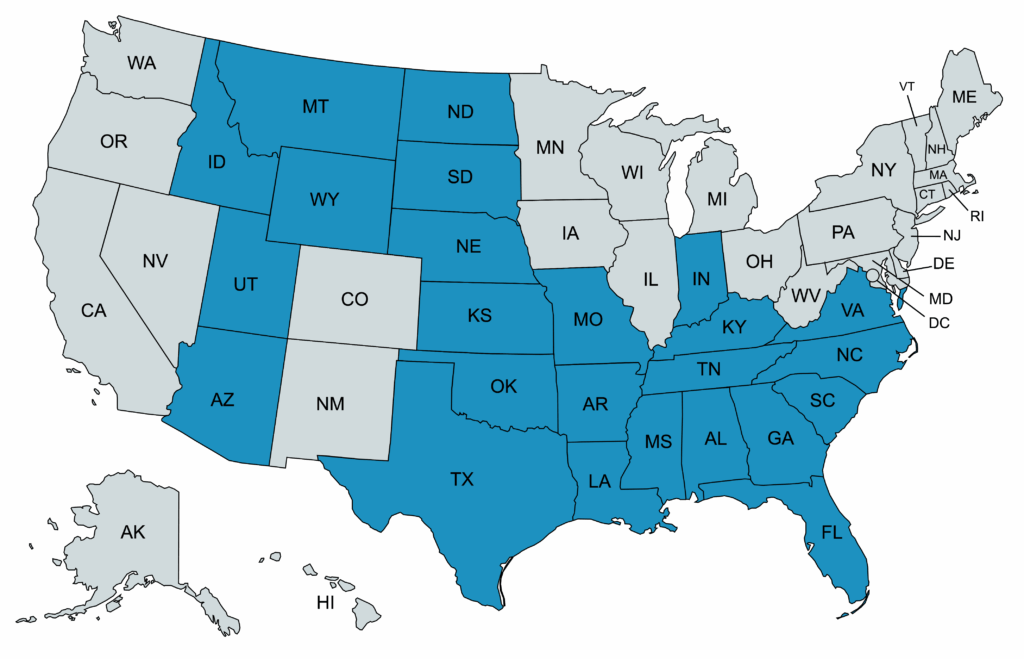 On Friday, the US Supreme Court ruled that states can require age verification for pornography web sites.
On Friday, the US Supreme Court ruled that states can require age verification for pornography web sites.
The specific state in question was Texas, hence the title of the case: Free Speech Coalition, Inc. v. Paxton, Attorney General of Texas. But of course it will apply to all state laws that have the same mandate. In the 23 states that have enacted such legislation, online pornography companies are required to verify would-be viewers’ ages, either via government IDs or some sort of “transactional evidence” (e.g., a phone bill or other statement, since only an adult could enter into such an agreement).
BTW, the “Free Speech Coalition” is a pornography industry trade association, not some general defender of the first amendment.
Here are the 23 states (in blue) which require age verification (Arizona’s has not going into effect yet):

The Legal Reasoning
You can read the full text of the decision yourself, but in a nutshell, it’s a balance between the government’s mission to stop minors from viewing porn and the burden it places on adults.
On one side of the equation, the government has a legitimate right to prevent minors from accessing porn, and this pre-dates the Internet. Before web sites existed, it was illegal for a 10-year-old to walk into an adult bookstore or subscribe to Penthouse. Laws preventing minors from viewing porn are overwhelmingly popular with Americans. Indeed, the Texas law that was the immediate subject here passed with only a single dissenting vote in the Texas legislature.
The other side of the equation is what prevention look like.
Imagine there was some mythical technology which immediately and infallibly knew the age of a website visitor and could transmit that information reliably to the web server. In that case, there would be nothing to argue about here. But because proving your age inevitably involves some kind of formal identification – a driver’s license, for example – the argument against these laws is that it puts an undue burden on adults.
In other words, having to send in a copy of your ID discourages adults from viewing. Lots of people want to view porn, but don’t want people to know that they’re viewing porn, so sending a scan of your driver’s license to a porn site makes people hesitate.
SCOTUS said, in fact: so what. The government’s interest far outweighs the relatively minor inconvenience. After all, lots of people send money to OnlyFans models or pay for for various porn sites, so the argument that this is a significant burden is weak.
Implementation
Most states require government ID or “commercial reasonable method based on transaction data” (e.g. mortgage, education, employment). But at least one (Mississippi) also allows for ” independent, third-party age verification services checking authoritative databases”. How that would work would be interesting to see, given that the would-be viewer would need to prove identity to the third party. Does the third party view the ID, and then issue some kind of token?
States that passed these laws later sometimes have more ambiguous language, such as “reasonable age verification”. Bizarrely, Georgia has a parental consent provision!
The penalties for violating these laws also vary. Some simply open the provider up to civil liability. Others require fines. Tennessee makes it a Class C felony.
So What Happens Now?
More VPN sales, as we’ve covered.























The real end goal is to end anonymity on the internet.
Back to torrenting porn here I go…